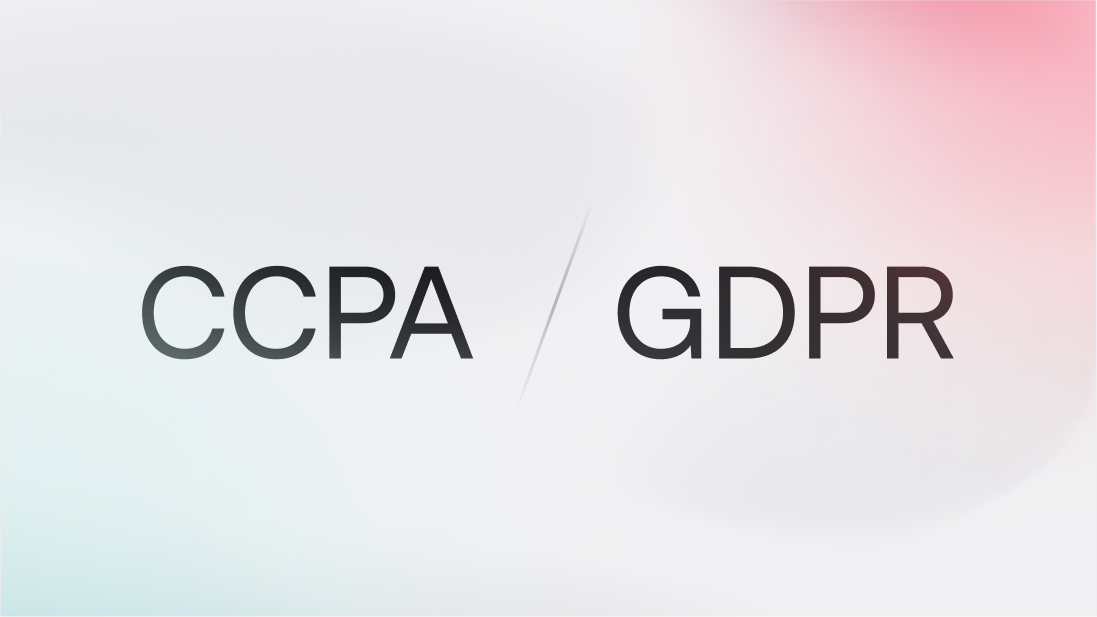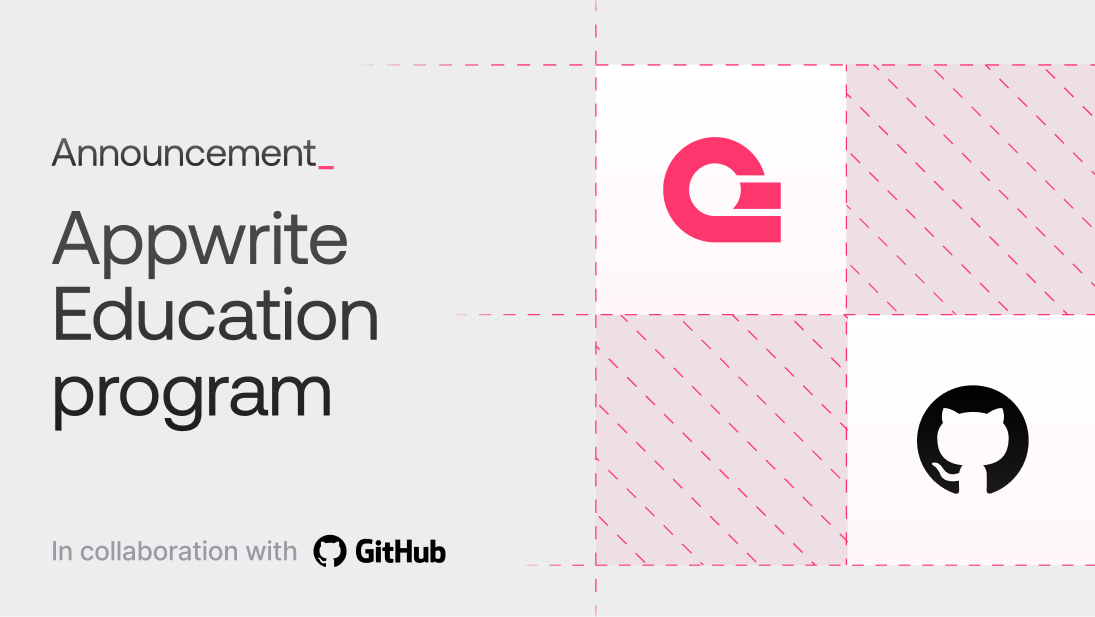When you build your application, one of the first things you need to set up is your database and authentication. In other words, you're handling and storing user data. But with this data comes great responsibility.
If you’re here, you probably want to understand how to handle this responsibility and manage user data properly. In this blog, we’ll break down some of the major compliance standards like California Consumer Privacy Act (CCPA) and the General Data Protection Regulation (GDPR), highlight their differences, and guide you on how to stay compliant with these regulations.
Overview of CCPA vs GDPR
What is GDPR?
The General Data Protection Regulation GDPR is a comprehensive data protection law that came into effect on May 25, 2018, across the European Union (EU). It aims to protect the personal data of EU citizens and harmonize privacy laws across Europe. GDPR applies to all businesses, regardless of location, that process the personal data of EU residents. Any developers building applications for EU residents must be GDPR-compliant.
What is CCPA?
The California Consumer Privacy Act CCPA, enacted on January 1, 2020, is a state-level privacy law in the United States that applies to residents of California. The CCPA for developers is often considered the most significant U.S. privacy regulation, giving Californians more control over their personal data and how businesses handle it. Developers looking to build CCPA-compliant apps must implement features that allow users to exercise their rights under the CCPA.
Here is a straightforward overview to compare the two:
| California Consumer Privacy Act (CCPA) | General Data Protection Regulation (GDPR) |
| Provides rights to California residents who are consumers. | Grants rights to individuals residing in the EU. |
| Covers personal information that can identify, relate to, describe, or be associated with a consumer or household, with certain exceptions. | Covers all personal data of an individual, excluding household data. Only anonymized information is outside its scope. |
| Applies to for-profit companies operating in California that meet specific financial thresholds, as well as their service providers. | Governs data controllers and processors that handle personal data of EU residents. |
To who do the laws apply?
Who must comply with GDPR
GDPR applies to businesses operating within the EU, offering goods and services to, or monitoring the behavior of EU residents.
It covers personal data processing, including names, emails, IP addresses, location data, and more.
Applies to companies of all sizes, as long as they process the personal data of EU residents.
Who must comply with CCPA
CCPA applies to for-profit businesses operating in California or serving California residents and that meet at least one of these thresholds:
Gross annual revenues of over $25 million.
Buy, receive, sell, or share the personal information of 50,000 or more California consumers, households, or devices.
Derive 50% or more of their annual revenues from selling California consumers' personal information.
Businesses that meet these thresholds need to prioritize CCPA compliance by ensuring user data control and clear opt-out functionality for data sales.
What are the definitions of personal data?
GDPR
Under GDPR, personal data is broadly defined as any information that relates to an identified or identifiable individual. This includes names and email addresses, as well as things like IP addresses, location data, and cookie identifiers. Ensuring secure data management for these data types is a key aspect of compliance for developers.
CCPA
The CCPA defines personal information similarly but includes additional categories such as browsing history, geolocation data, and inferences drawn from personal data to create a consumer profile. The law emphasizes the sale of personal information, so developers must implement opt-out functionality to meet CPA compliance.
What are a consumer’s rights?
Both GDPR and CCPA provide users with enhanced rights regarding their personal data, but the rights differ slightly.
Under GDPR, consumers have:
Right to access: Individuals can request access to their data and information on how it is processed.
Right to rectification: Users can ask for inaccuracies in their personal data to be corrected.
Right to erasure (Right to be forgotten): Individuals can request that their personal data be deleted.
Right to restrict processing: Consumers can request to limit the use of their personal data.
Right to data portability: Individuals can receive their data in a machine-readable format and transfer it to another service.
Right to object: Consumers can object to the processing of their data under certain conditions.
Right not to be subject to automated decision-making: Including profiling based on personal data.
Under CCPA, consumers have:
Right to access: Users can request a copy of the personal information collected about them in the previous 12 months.
Right to deletion: Individuals can ask that their data be deleted (with some exceptions, such as for completing transactions or legal compliance).
Right to opt-out of the sale of personal information: California residents can instruct companies not to sell their personal data to third parties.
Right to non-discrimination: Businesses cannot discriminate against consumers for exercising their CCPA rights (e.g., charging them higher prices or offering lower-quality services).
Right to correct: Consumers can correct any inaccurate personal information a business has about them.
Right to limit: Consumers can limit how businesses use and share their sensitive personal information.
How are both laws enforced?
GDPR penalties
GDPR imposes severe penalties for non-compliance:
Fines can be up to €20 million or 4% of the company’s global annual revenue, whichever is higher.
Non-compliance can lead to significant financial and reputational damage, making privacy by design a priority for developers.
CCPA penalties
CCPA penalties are less severe but still impactful:
Fines of up to $2,500 per violation or $7,500 for intentional violations.
There is also a provision for consumers to sue businesses directly for certain types of data breaches, which can result in additional financial liability for companies.
Opt-in vs. opt-out
GDPR requires businesses to obtain explicit consent (opt-in) before processing personal data, particularly sensitive data categories like health or financial information.
CCPA operates primarily on an opt-out basis, where businesses can process personal information unless the consumer explicitly opts out, particularly regarding the sale of personal information. This means developers need to implement developer-friendly CCPA tools and secure APIs for CCPA compliance to ensure consumers can easily exercise their rights.
Global implications for developers
If you’re building applications or services that target a global audience, you may need to comply with both CCPA and GDPR. The overlap between the two means you can streamline some compliance efforts, but you’ll also need to account for the specific requirements of each law.
For example:
Under GDPR, consent management and data minimization are key, so developers need to build features like granular consent capture and access logs.
Under CCPA, the emphasis on opt-out mechanisms for data sales means that developers should build clear, user-friendly options for consumers to opt out of data selling practices.
Using platforms like Appwrite, which offers compliant backend services with built-in Appwrite privacy features, developers can ensure their applications meet both CCPA and GDPR standards. With Appwrite’s secure backend and privacy compliance solutions, developers can seamlessly integrate privacy controls like opt-out functionality, user data control, and secure data management into their applications.
Building with privacy in mind
Both the CCPA and GDPR are designed to empower consumers and provide them with more control over their personal data, but they take different approaches to achieve this goal. For developers, the key takeaway is that compliance isn’t just about meeting legal requirements—it’s about fostering trust with users. By designing privacy-conscious applications, developers can ensure they meet both CCPA and GDPR standards, keeping their products legally compliant and user-focused.
Understanding the differences between CCPA and GDPR helps developers build apps that protect privacy and are transparent. Using developer-friendly platforms like Appwrite, which offer privacy-focused tools and secure APIs, makes it much easier to create apps that comply with both CCPA and GDPR.
Take a look at our documentation to learn more about how we approach security and compliance.



